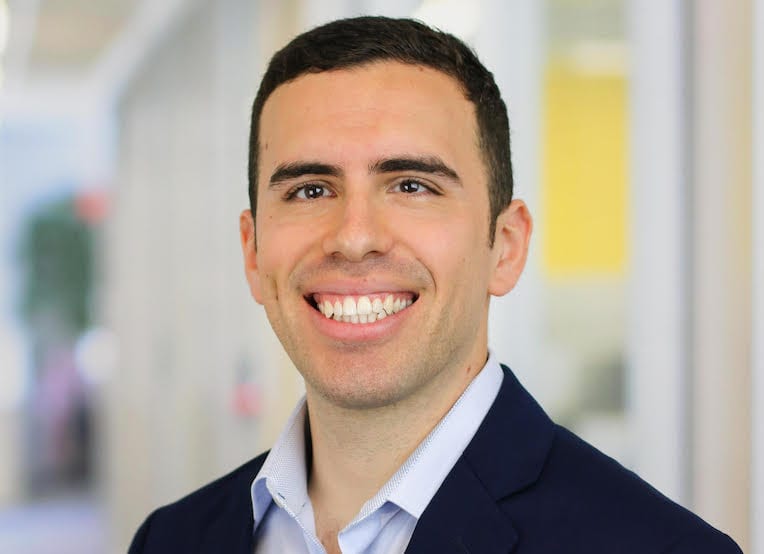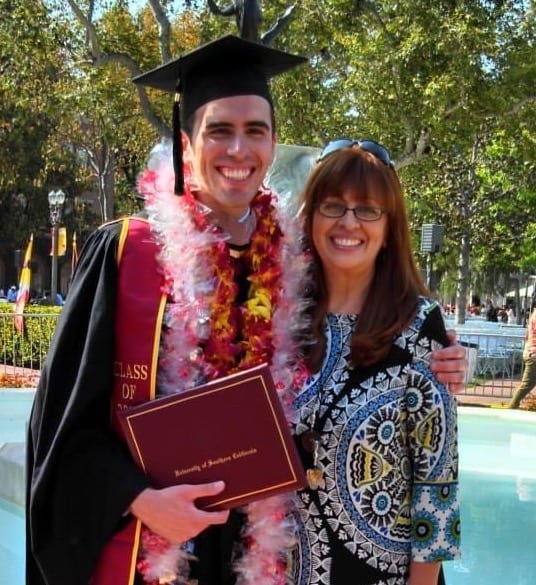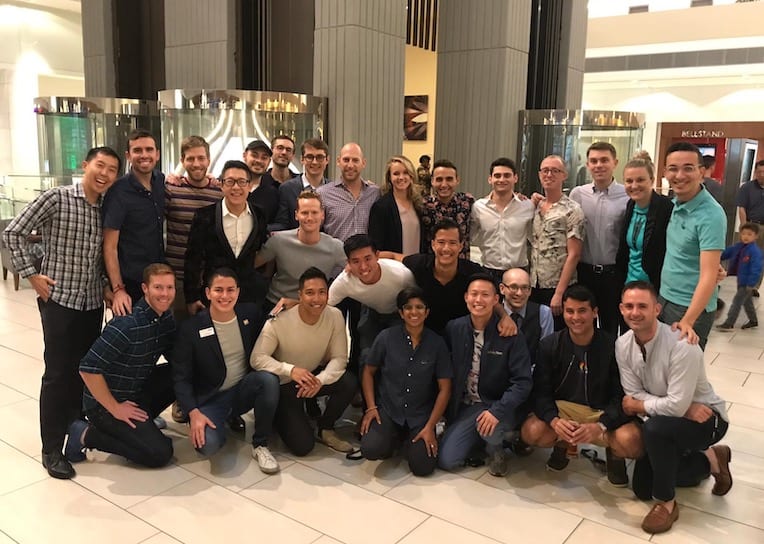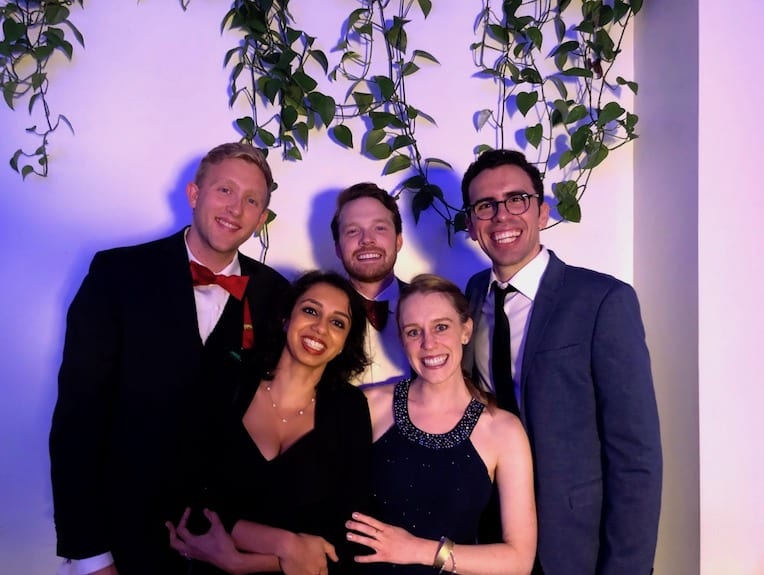In honor of Pride Month, we’re highlighting members of the LGBTQ community at Haas.

In this interview, Peru native Eduardo “Eddie” Consigliere, MBA 21, talks about coming out to his mother, his leadership role in Q@Haas, and his love for the annual Coming Out monologues.
Tell me about your background and where you grew up?
I am originally from Lima, Peru. My parents separated when I was three years old so I lived with my mom, grandparents, aunt, and uncle in one big house. On the weekends my aunt and cousins would come over for family gatherings so the house was always loud and filled with laughter. I always enjoyed being around my family, especially during the holidays. My mom moved to the US when I was 12 and I joined her when I was 14. I’ve hopped around California ever since.
How old were you when you figured out that you might be gay?
I think a part of me always knew I was different. I just didn’t have the tools or language to identify what that difference was. I remember telling my mom that when we watched Beverly Hills 90210 and Melrose Place, I would pay more attention to the boys. I think I was worried that there was something wrong with me and I wanted her to fix it.
In school, while most of the boys played soccer during recess, I hung out with my girlfriends and secretly watched Sailor Moon. Obviously athleticism and sexuality are not correlated, but I felt different than the rest. I always thought it was because I was an only child growing up with a single mom, and I took after her. When I was a first year in college, I avoided parties and alcohol because I was afraid that if I drank too much, I would accidentally do something to out myself.
What was the process of coming out like?

It was difficult. It was the night of my 21st birthday and I had been hinting to my friend that I wanted her to ask me. So she did and that’s how I came out. Even though I was surrounded by an incredibly supportive community, there was a part of me that was afraid of being vulnerable, and still carried that mentality that there was something wrong with me. After that I started coming out to friends in casual, and sometimes completely uncomfortable and awkward ways, like typing it on their computer during class or screaming it at the top of my lungs.
I came out to my mom about two years later. We hadn’t been getting along and one day she called me during the middle of a work retreat. She asked me if the reason why we hadn’t been getting along was because there was something painful I was hiding, and if that had to do with my sexuality. Needless to say, I had to leave the work retreat because I was bawling uncontrollably. Because of the circumstances, I thought she was going to be fully on board, but it still took a little while for her to understand. She eventually came around and is now so supportive and my biggest cheerleader. She dabbles in gay pop culture, sends me articles, and always takes a moment during Pride and national coming out day to celebrate my holidays and tells me she’s proud of me.
What about the rest of your family? Have you come out to them?
I’ve come out to my family in the U.S. and they’ve been very supportive. After all these years living here, I don’t see or speak to my family in Peru very much, so I don’t feel the need to come out to them. I’m also hesitant because of some anti-LGBTQ views and comments that they’ve posted on social media, so I’ve decided not to share that part of myself with them. At least for the moment.

How are you promoting inclusion at Berkeley Haas?
One of my goals for business school was to be more connected to the LGBTQ+ community. So I was excited to join Q@Haas. This year, I’m one of the co-presidents. One of our main priorities is to make sure that we sponsor events that are inclusive to all our members, not just one segment of the population, for example gay men. We’re also engaging with other clubs to create programming to not only cultivate the relationship between our community and our allies, but also to create a space to acknowledge the intersectionality of our identities.
My favorite event is the Coming Out Monologues, which happens early in the school year. Last fall, I was helping set up Spieker Forum and we set up around 320 chairs. By the time we kicked off the event, there was standing room only. It was so powerful to see classmates whom I’ve met just three weeks ago show up and hear people’s coming out stories. Those are so personal and sometimes painful to relive. So to see all of that excitement, support and respect, and to be embraced by the broader community like that was huge. I think it speaks volumes about the type of people that we have at Haas and how much they care.

What does intersectionality mean to you and what can we learn about a person through this lens?
Intersectionality means we all have multiple identities. It’s beautiful yet complicated because it’s difficult to piece out an individual part of your identity. It all plays together. For me, my immigration story was one of the biggest influences in how I approach life and it influenced my level of self-acceptance and comfort with others. Coming to the U.S. is one of the hardest things a person can do. To do that, I told myself that I needed to be strong and build walls around me. Coming out was one of the steps towards chipping away at those walls.
While we can think of things in isolation, we also need to think about the broader context of a person’s experience, like their race, socioeconomic background, immigration status, ability, or education to understand their lived experiences. I think we’re getting better at understanding individual differences, looking at the whole person, and not making blanket statements, but it’s a constant struggle. Intersectionality of identity means that no two stories (and no two people) are the same.